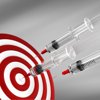Fritextsökning
Artiklar per år
Innehållstyper
-

Healthcap: ”Rätt mycket torrt krut kvar”
Riskkapitalbolaget Healthcap, med inriktning mot life science, investerar för närvarande i bolagets åttonde fond. Hittills har investeringar skett i 13 olika bolag i fonden.
-

Fågelinfluensa i Asien och Sydamerika oroar WHO
Fågelinfluensa, H5N1, har den senaste tiden påvisats hos människa i Kina, Kambodja och Ecuador. I nuläget finns inga rapporter om att viruset smittar mellan människor.
-

Företag i Kanada får börja tillverka kokain
Ett företag i den kanadensiska provinsen British Columbia har fått tillstånd att tillverka och sälja kokain på licens.
-

The Swedish National Board of Health and Welfare rejects prioritising andrology as a speciality
awareness and knowledge. But the Swedish National Board of Health and Welfare says that it is not a priority.
-

“An entire industry is about to be wiped out”
According to Jennie Ekbeck, CEO of Umeå Biotech Incubators, Sweden risks not having any small diagnostic companies left in five years.
-

How critical are the “Spermageddon” reports? – Researchers call for action
A much talked about meta-study indicates that sperm concentration in men’s seminal fluid has halved in 40 years. Experts in andrology that Life Science Sweden speaks to believe that the results must be taken seriously, and call for action from the Swedish authorities.
-

Column: ”Life as a F1 race”
"The F1 car makes several pit stops during a race and during a lifetime the human being may also have to come in several times for maintenance", Björn Ursing writes in a column.
-

”Sverige i toppklass på innovation – men sedan är det stopp”
Sverige rankas år efter år bland de främsta som innovationsland. Men när innovationerna ska ut i sjukvården tar det stopp, skriver Therese Hazelius i en debattartikel.
-

Editorial: ”AI that both impresses and frightens”
”In the past, I've rarely been particularly impressed by something that was produced by AI. But this is something completely different”, Samuel Lagercrantz writes in an editorial.
-

Hello Jenni Nordborg!
Life Science Sweden would like to know more about Jenni Nordborg and asks her about her new job, why she became a chemical engineer and who her role model is.
-

A surprising discovery about the immune system in cases of cancer
Professor Göran Jönsson is trying to understand why some patients benefit from immunotherapies while others don’t. A couple of years ago, he made a surprising discovery about the function of the immune system.
-

Rapid development in blood analysis – “Sweden is leading the race”
Thousands of analytical tests using just one single drop of blood. What was revealed as a hoax just a few years ago is now a reality, according to KTH professor and serial entrepreneur Mathias Uhlén.
-

Column: ”Authentic leadership and clear mandates pave the way for more female CEOs”
”I believe that the aspect of having clear mandates and titles on the one hand and women progressing into top positions must be explored further”, Helena Strigård writes in a column.
-

Uppsalabolag köper brittiskt företag i miljardaffär – och får nya storägare
Bioteknikbolaget Biotage har tecknat avtal om att förvärva brittiska Astrea Bioseperations i en affär värd över två miljarder kronor. Betalning sker i aktier till säljaren, amerikanska Gamma Biosciences, som därmed blir största ägare i Biotage.
-

Individual DNA passport could result in fewer drug side effects
You may be required to show a DNA passport when you pick up medicines at the pharmacy in the future. According to a new study, patients might suffer 30% fewer side effects if the drug treatment is adapted to their genes.
-

Claims of life science companies fleeing abroad is a myth according to survey
The claim that life science companies are moving abroad is exaggerated. In fact, only a tiny percentage is leaving the country, according to a survey.
-

Precision medicine centre: “Extensive activity on several fronts”
Two years ago, the Karolinska Institutet and the Karolinska University Hospital announced that they would jointly launch the Precision Medicine Centre. Medtech Magazine called Anna Wedell, who is heading the work, to find out…
-

”Vi behöver se fördelarna med regleringar”
Man behöver inte leta länge på internet för att hitta listor över mest innovativa länder där Sverige placerar sig i topp. Vi har generellt goda förutsättningar för att få fram nya lösningar, men det börjar också bli alltmer tydligt att vi utmanas inom ett område – regleringar.
-

Column: ”We need to exploit the benefits of the regulations“
You don’t need to search long on the Internet to find lists of the most innovative countries with Sweden ranking at the top. Sweden generally offers good conditions for growing new solutions, but it is also becoming increasingly clear that we
-

Hög aktivitet på Precisionsmedicinskt centrum
För två år sedan meddelade Karolinska institutet och Karolinska universitetssjukhuset att de tillsammans skulle sjösätta Precisionsmedicinskt centrum. Medtech Magazine ringde upp Anna Wedell, som leder arbetet, för att ta reda på…
-

The government proposes fines for pharmaceutical companies that fail to notify drug shortages in time
According to a compilation from the Swedish Medicines Agency, the number of residually notified medicines increased by 54 % in Sweden last year compared to the previous year. In a bill presented by the government a number of proposals are put forward to counteract the problem.
-

God löneutveckling inom life science
Efterfrågan på arbetskraft inom life science ökar och ny statistik från Naturvetarna visar även på en god löneutveckling under fjolåret.
-

He saved lives with his theories – was ostracised and ended up in a mental hospital
Hungarian doctor Ignaz Semmelweis (1818-1865) undoubtedly possessed plenty of persistence, diligence and sound reasoning skills – but he was hardly blessed with luck and timing.
-

"Unclear proposal from the EU Commission on how to solve the MDR challenges"
Even before the EU regulation on medical devices (MDR) came into force, medical technology companies and doctors were concerned that it would endanger the availability of medical devices in the EU. Unfortunately, the fears have come true.